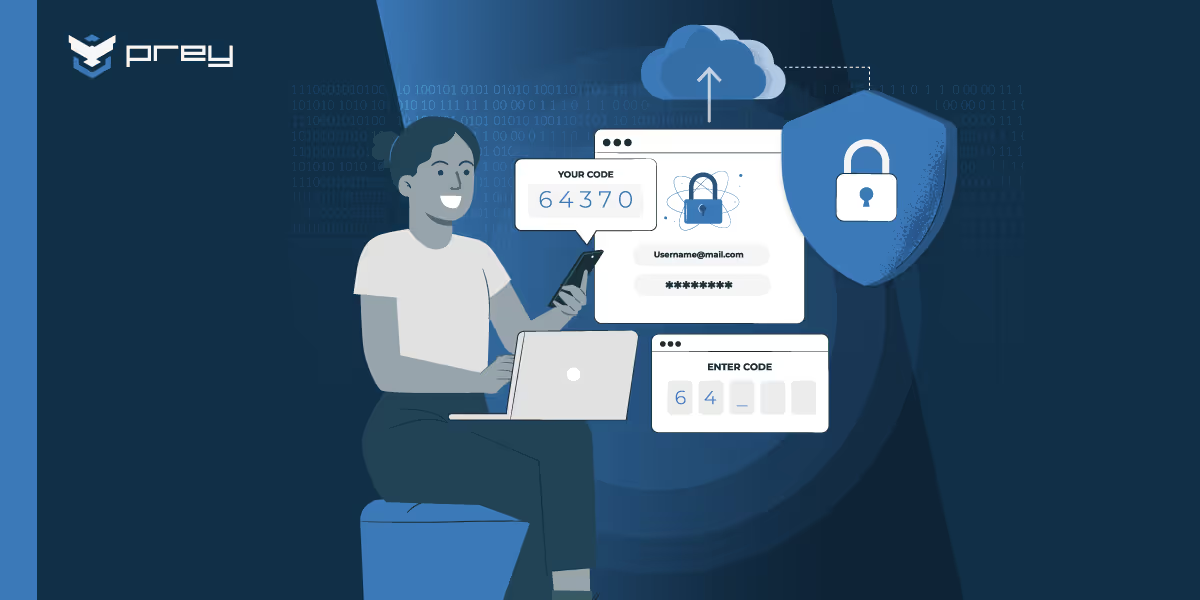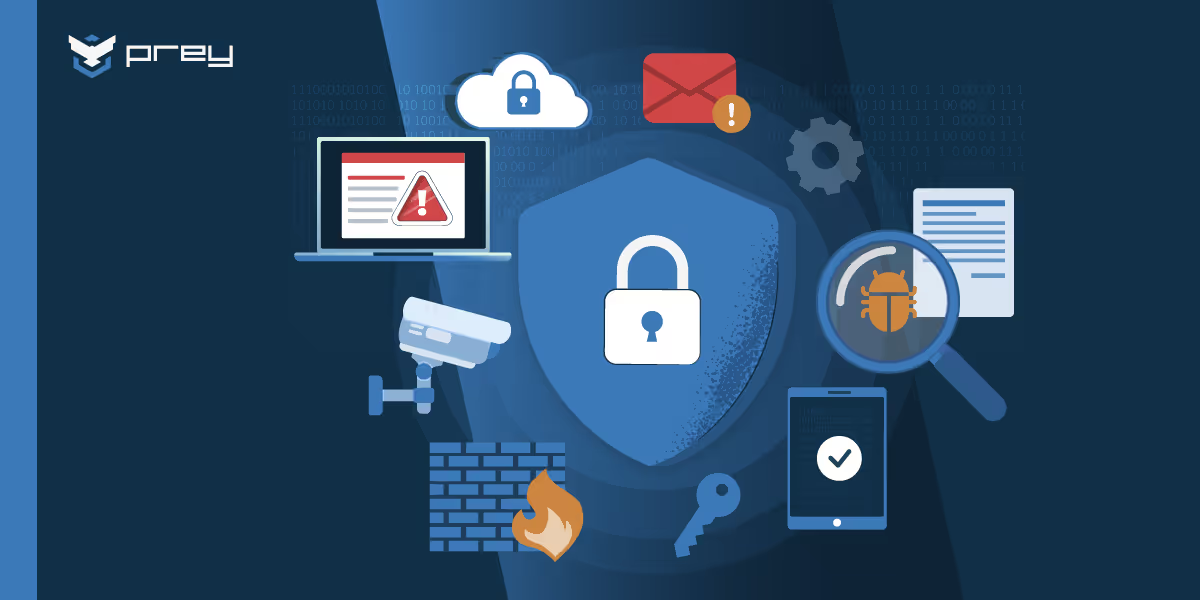You may be right if your computer or phone is acting strange and you suspect you’ve been hacked or infected by a virus. According to a Duke University study, at least 80% of all US-based companies have suffered an attack. Moreover, that number is only set to rise. . These breaches, on average, cost US organizations an average of $3.86 million, according to an IBM security audit.
When hackers target business organizations, they are after personal and financial data, trade secrets, and access information to extort victims or breach sensitive data. For example, in 2017, HBO was the target of hackers who stole thousands of internal documents.
Suppose your PC has been hacked or infected with malware. In that case, you must take quick action to protect your information and prevent the attack’s spreading through your digital and professional network.
These are the three steps you need to take immediately when your computer has been hacked.
1. Disconnect and quarantine your PC
LifeWire suggests you isolate the infected computer as soon as possible. As long as you’re connected to the internet, the hacker has access to the device and its directory.
You don't need to cut the network cable. Instead, unplug your computer from the network and avoid any wireless or physical connection. The goal is to prevent the virus from spreading!
Make sure you're offline and turn all Wi-Fi connections off, both by software and hardware. Some laptops even have a switch for this.
Why disconnect hardware? Hacking software is sophisticated and can make your computer seem like you are disconnected. At the same time, the malware continues to wreak havoc in the background.
It is increasingly important to ensure that your sensitive data is encrypted and your devices are protected by security management software. Features like device tracking, file retrieval, and remote wipe add layers of security against hackers and thieves.If you need a device security platform, we can help.

2. Change your passwords
According to Betterbuys, "it only takes five hours to decipher a password that's six characters long." Choosing a password with at least 12 characters will take centuries to crack.
First, you need to change your PC's access password. Then, change all your passwords using an unaffected computer or smartphone—email, social networks, subscriptions, etc. Every service you have access to holds precious information, including billing and personal data.
According to CybInt, 95% of breaches are caused by human error. What this means is that you could have unknowingly given enough identifying information for a hacker to guess your password. It could also mean that you’ve mistakenly run an infected program or document that contained malware. Verizon found that 45% of breaches featured hacking, 17% involved malware, and 22% involved phishing
How many of your accounts use the same password or variations of it? One password could be enough to grant access to all sorts of accounts. So double-check its strength and think it through.
According to CyberSecurity & Infrastructure Security Agency (CISA), there are a few criteria you should follow when creating a safe password.
- It should be between 8 and 64 characters (the longer, the better).
- It shouldn't include personal information, like your name, your birthday, or your company's name. Get creative with it, and have fun!
- It has to be different from your previous ones and from your other passwords.
- If possible, don't include complete words.
- Use mnemonics and memory techniques. For example, instead of using “hoops” try “IlTpbb” for “[I] [l]ike [T]o [p]lay [b]asket[b]all.”Create it using characters from all four categories: lower and upper case, numbers, and symbols.
Using a password manager makes changing passwords a breeze and also gives you added security benefits such as Two-Factor Authentication and issuing temporary passwords.
3. Remove external devices to prevent further spread
If you have USB flash devices and external hard disks connected to your PC, make sure you disconnect them from your device. Don’t forget to "eject" them first. (Select the relevant folder and then click "eject.")
If you're positive you've been hacked, you should also delete your computer's hard disk. Back up whatever files you have (you may even save them to the cloud, such as Google Drive, or email tiny files to yourself); turn off all power sources, and then remove the hard drive after the computer has been turned down. Its placement will differ depending on the make or model, so examine the manual (hard copy or online) or, if you're not comfortable doing so, seek the assistance of an IT specialist.
4. Run a full system scan and remove malware
Even after disconnecting from the internet and securing your passwords, malware can still linger deep within your system files, quietly doing damage. Running a full system scan is critical because it helps you locate and remove malicious software that may otherwise go unnoticed. A simple virus may be easy to spot, but advanced malware often hides in system processes, waiting to cause further harm.
- Use trusted antivirus or malware removal tools. Start by launching a complete system scan with a reliable, up-to-date antivirus program. Make sure you’re scanning every part of your device, including hidden files and folders.
- Choose robust protection. While there are many antivirus options available, ensure you're using one with a proven track record. For added layers of security, Prey’s monitoring services can complement these scans, giving you real-time protection against potential threats. With Prey, you’ll also have the power to track your devices, recover lost files, and even remotely wipe data if needed.
- Take immediate action on flagged files. If your antivirus flags suspicious files, don’t hesitate—quarantine or delete them immediately. Once the scan is complete, review the results and ensure all malware has been properly handled.
Don’t rely on manual file deletion. Even if you can identify a suspicious file, deleting it manually isn’t enough. Malware often hides in multiple locations or regenerates from fragments left on your hard drive. Using professional scanning tools ensures that malware is thoroughly eradicated from your system, leaving no traces behind. Remember, the goal is to completely cleanse your device, not just patch up the surface.
5. Backup and wipe your hard drive (if necessary)
If you find a virus or hack, you should wipe your hard drive and reinstall your operating system. Wiping means to totally wipe, so keep in mind that everything you delete will be gone forever unless you back it up first.
Do not remove files manually: they will still exist someplace on your hard disk. Instead, do the wipe with downloadable software. A wipe, like a virus scan, will notify you when it has been completed entirely.
6. Notify your contacts
Hackers will try to spread by breaching an individual and targeting their network. The reason is simple. Your friends are more likely to open messages from you without thinking twice. Hence, hackers use your email to send messages pretending to be you.
So before you spam a virus to your family, friends, and coworkers. Give a heads up. Protect your core group and notify them immediately to avoid spreading the attack.
7. Secure your system for the future
Cleaning up after a hack is crucial, but the battle doesn’t end there. Once your system is free of malware, it’s time to fortify your defenses to prevent future attacks. Cyber threats are constantly evolving, and if your device isn’t protected, you’re leaving the door wide open for another breach. By taking preventative measures now, you reduce the risk of getting hacked again and keep your sensitive information safe.
- Install and regularly update antivirus software.
Your antivirus is your first line of defense. Make sure you have a reliable program installed and that it’s set to update automatically. New viruses and malware variants pop up every day, so keeping your antivirus current ensures you’re protected against the latest threats. - Keep your operating system and all apps updated.
Software updates aren’t just about new features—they often contain critical security patches that fix vulnerabilities hackers can exploit. Make sure both your operating system and all applications are always up to date. Set automatic updates wherever possible to reduce your workload and stay protected without having to think about it. - Use Prey’s software for continuous monitoring, file retrieval, and remote wiping.
Don’t wait for the next attack—take control with Prey. Our software offers continuous monitoring, so you can keep an eye on your devices, track their location, and even retrieve files remotely if needed. And if things go south again, Prey allows you to wipe your data remotely, protecting your sensitive information from falling into the wrong hands. By integrating Prey into your security routine, you’re staying one step ahead of hackers and securing your digital life.
Takeaways
Prevention is the cornerstone of virtual security and the best defense against hackers. Make sure you always:
- Turn off your computer when you're not using it
- Save sensible files on portable HDDs
- Keep your operating system and antivirus software up to date
- Don't forget to encrypt your data.
These tips are both practical and super easy to implement.
Cybercrimes are a real threat, and the steps outlined here are only a quick strategy to respond to hackers once they’ve already infected your computer. But you should be prepared well before this point by practicing good cybersecurity hygiene.
Beat the hackers. One app, one account, and a single online hub to find a lock. And secure all your gadgets. Get Prey.
If you act quickly enough, you'll have a key advantage that makes all the difference when trying to recover your files and minimize the damage. Time to get ready!







